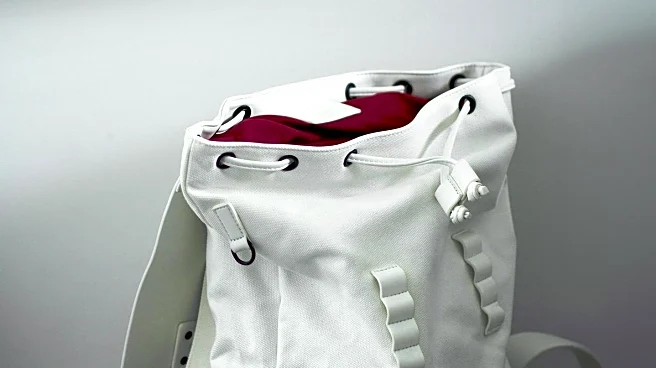What's Happening?
Vantive has been recognized with the Asian Experience Awards 2025 for its Jom Recycle project, which aims to reduce plastic waste from home dialysis treatments. The initiative, awarded in the Malaysia Partner Experience of the Year - Healthcare category, focuses on recycling dialysis solution bags, applying Extended Producer Responsibility principles. The project involves a reverse logistics system, bilingual standard operating procedures, and starter kits for patients, including biodegradable liners and educational materials. As of June 2025, Jom Recycle has engaged 12 hospitals and enrolled 315 patients, diverting nearly 3,877 kg of plastic from landfills and preventing significant CO2 emissions.
Why It's Important?
The Jom Recycle project addresses the growing issue of plastic waste in healthcare, particularly from home-based dialysis treatments. By implementing a sustainable recycling system, Vantive is setting a benchmark for circular healthcare practices. This initiative not only reduces environmental impact but also promotes collaboration among stakeholders, including hospitals and logistics partners. The project's success could lead to broader adoption across Malaysia, enhancing environmental compliance and safety in medical waste management. It represents a significant step towards sustainable healthcare solutions, potentially influencing policy and industry standards.
What's Next?
Vantive plans to expand the Jom Recycle project to additional hospital networks and patient groups, aiming for national replication. The standardized procedures ensure safety and traceability, making the project suitable for wider implementation. Continued stakeholder engagement and feedback will be crucial in overcoming logistical challenges and refining segregation protocols. The initiative's success may inspire similar projects in other regions, fostering a more sustainable approach to medical waste management globally.
Beyond the Headlines
The Jom Recycle project highlights the importance of multi-stakeholder collaboration in addressing environmental challenges within healthcare. It underscores the potential for innovative solutions to drive systemic change, encouraging behavioral shifts among patients and healthcare providers. The project also raises ethical considerations regarding the responsibility of medical institutions to manage waste sustainably, potentially influencing future healthcare policies and practices.









